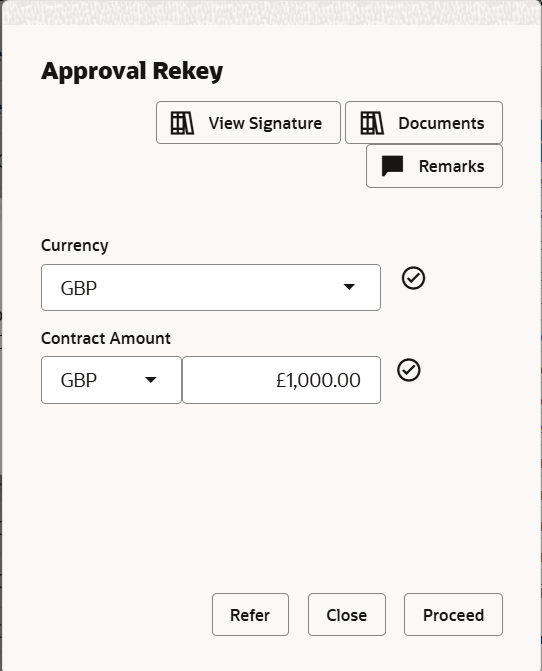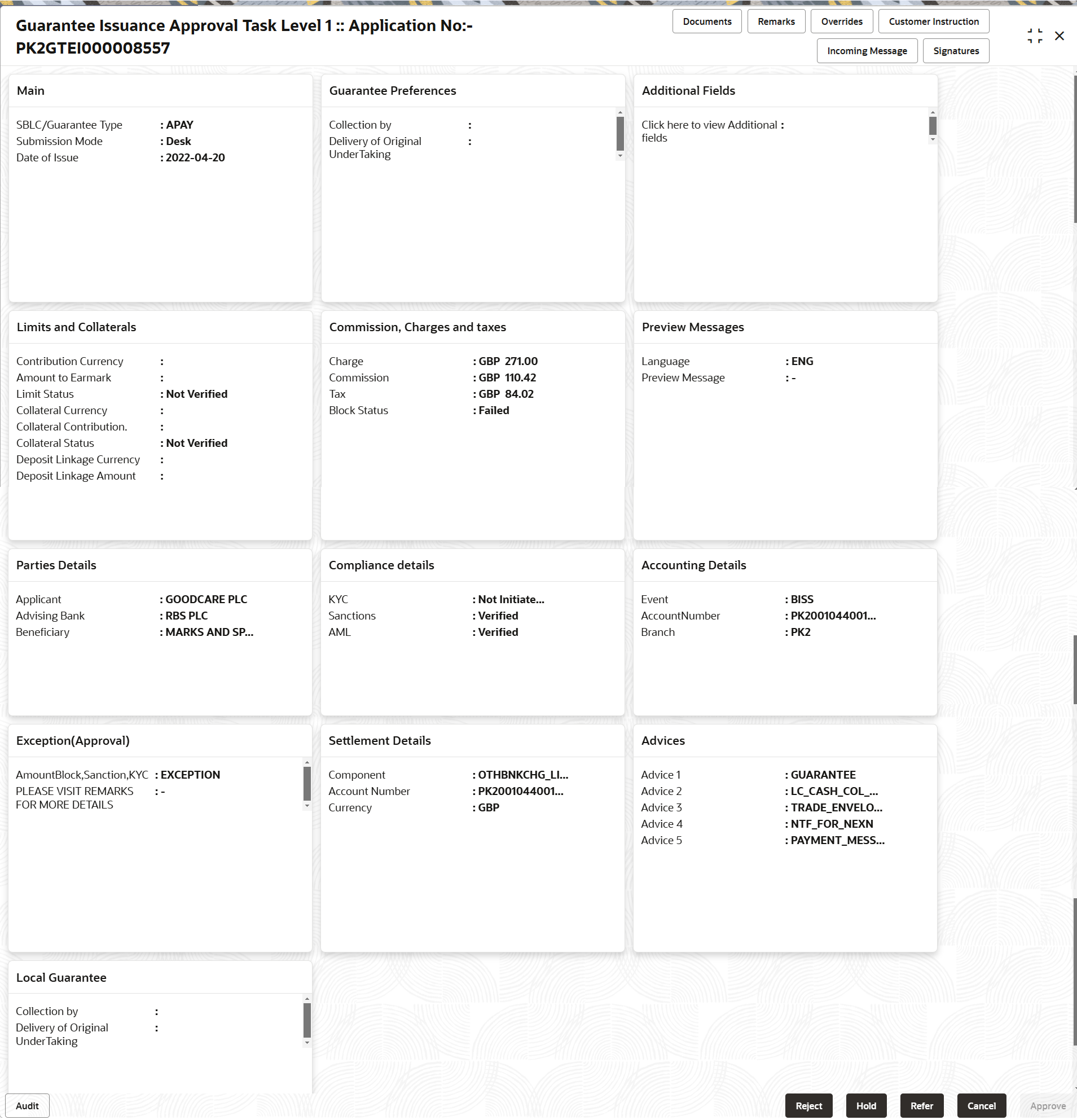2.9 Multi Level Approval
This topic helps you quickly get acquainted with the Multi Level Approval process.
- Log in into OBTFPM application and acquire the task available in the approval stage in free task queue. The user can view the Summary tiles which displays list of important fields with values.
- Click each tile to drill down from summary Tiles into respective data segments
to verify the details of all fields under the data
segment.
In case of MT798, on approval the task is handed off to back office system to create a Guarantee contract and generate the required MT760/761 messages.
Note:
The user can simulate/recalculate charge details and during calling the handoff, if handoff is failed with error the OBTFM displays the Handoff failure error during the Approval of the task.
Authorization Re-Key (Non-Online Channel)
For non-online channel, application will request approver for few critical field values as an authorization step. If the values captured match with the values available in the screen, system will allow user to open the transaction screens for further verification. If the re-key values are different from the values captured, then application will display an error message.
- Currency
- Contract Amount
Approval Summary
- Main Details - User can view the application details and guarantee details.
- Guarantee Preferences - User can view the guarantee preferences details.
- Additional Fields - User can view the details of additional fields.
- Limits and Collaterals - User can view limits and collateral details.
- Commission, Charges and taxes - User can view commission, charges and taxes details.
- Preview Messages - User can view the preview message details.
- Parties Details - User can view party details like beneficiary, advising bank etc.
- Compliance Details - User can view compliance details. The status must be verified for KYC and to be initiated for AML and Sanction Checks.
- Accounting Details - User can view the accounting entries
generated in back office.
Note:
When the Value Date is different from the Transaction Date for one or more accounting entries, system displays an Alert Message “Value Date is different from Transaction Date for one or more Accounting entries. - Exception(Approval) Details - User can view the exception (Approval) details.
- Settlement Details - User can view the settlement details.
- Advices - User can view the local advices details.
- Local Guarantee - User can view the local guarantee details.
- Click Approve.
Table 2-30 Approval Summary - Action Buttons - Field Description
| Field | Description |
|---|---|
| Documents | View/Upload the required
document.
Application displays the mandatory and optional documents. |
| Remarks | Specify any additional information regarding the
guarantee. This information can be viewed by other users processing
the request.
Content from Remarks field should be handed off to Remarks field in Backend application. |
| Overrides | Click to view the overrides accepted by the user. |
| Customer Instructions | Click to view/ input the following
|
| Common Group Message | Click Common Group Message button, to send MT799 and MT999 messages from within the task. |
| Incoming Message | This button displays the multiple messages (MT760 +
up to 7 MT761.
In case of MT798, the User can click and view the MT798 message(770,700/701). |
| Signatures | Click the Signature button to verify the signature of the
customer/ bank if required.
The user can view the Customer Number and Name of the signatory, Signature image and the applicable operation instructions if any available in the back-office system. If more than one signature is available, system should display all the signatures. |
| Cancel | Cancel the Data Enrichment stage inputs. The details updated in this stage are not saved. The task will be available in 'My Task' queue. |
| Hold | The details provided will be saved and status will be
on hold.User must update the remarks on the reason for holding the
task.
This option is used, if there are any pending information yet to be received from applicant. |
| Reject | On click of Reject, user must select a Reject Reason
from a list displayed by the system.
Reject Codes are:
Select a Reject code and give a Reject Description. |
| Refer | Select a Refer Reason from the values displayed by
the system.
Refer Codes are:
|
| Approve | On approve, application must validate for all mandatory field values, and task must move to the next logical stage. If there are more approvers, task will move to the next approver for approval. If there are no more approvers, the transaction is handed off to the back end system for posting. |
Parent topic: Guarantee Issuance

